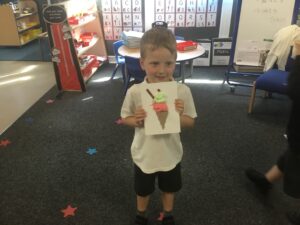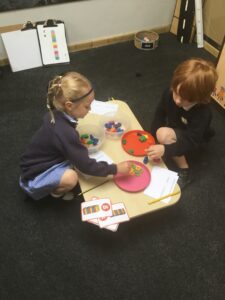We kick off this week’s message with early news of our annual Summer competition…
Extreme reading
Here at St James’ CE Primary, we love reading. Over the coming weeks, we’ve a challenge for your child… Show us how reading-obsessed they are by sending us a pic of them reading in an extreme place or position.
For last year’s competition, we gave you a few ideas for your happy and healthy smiley faces spotted in unusual places. This year, we’re not giving you any ideas (yet!), but you’ve plenty of advance warning, so get your thinking caps on!
To enter, email your pics to stjamesoffice@spherefederation.org by Friday 08 September. Enter ‘Summer competition’ as the subject.
All entries will be displayed in school, and there are prizes for our favourites.
Our current topic…
…is a Design and Technology one – it’s a great topic to finish the year! The focus for all classes this year is construction (next year, it’s textiles) so children are busy designing and making products.
A key aspect of the Design and Technology curriculum is the understanding that products don’t just get made. Instead, they go through a design process that includes three key elements: evaluate, design and make. Think of this process as a cycle. For example, Sphere Motors want to create a new family car. Before the car is made, they need to evaluate existing products and talk to customers so that they’re clear about what the new car needs to have. They will then design the car and evaluate those designs. They may make a prototype of the car to help them evaluate the designs. Next, they’ll decide on a final design that will go into production and get made. This finished product will be evaluated and the whole process starts again.
Years 1 and 2
Children have been exploring what makes structures stable and strong. Next, they’ll get their design brief: to design and make a new chair for Baby Bear (clumsy Goldilocks has broken it again). Children will design and make their product, using what they’ve learned about strength and stability to help them. Finally, they’ll evaluate the product by testing it and reflect on what they would change about their design to improve it.
Years 3 and 4
Children will use a construction kit called Techcard to design and make a prototype of a go-kart which must satisfy a number of design criteria. They’ll explore how to make strong structures and mechanisms using Techcard before designing and making their prototype. Finally, children will evaluate their finished product by comparing it to their design and testing whether they have achieved the design criteria.
Years 5 and 6
Children have begun the topic by learning about pioneering female designers and engineers.
They then move on to designing and making a moving vehicle which most protect Eggy the Egg in a crash. They’ll need to research and learn about the different safety features that cars use to prevent crashes and protect passengers. They’ll then establish the design criteria and design and make their vehicles. They’ll be using a range of tools and materials to make their vehicles. Finally, children will test their vehicles against each design criteria to see how successful it is. They’ll then evaluate the vehicle based on the results of the tests to suggest improvements.
How can you help?
Talk to your child about what they’ve been learning in class. You could even talk through the three key elements of the design process: evaluate, design and make (check out Sphere Motors, above).
The class news page of the school website is a good place to go to find out more about what the children are doing.
The school library and local libraries will have some books about Design and Technology which your child will be able to borrow and develop both their reading skills and design knowledge.
Finally, there’s a lot of programmes on CBBC and CBeebies with a Design and Technology focus:
- Bitz and Bob
- Grace’s Amazing Machines
- Junk Rescue
- Maddie’s Do You Know?
- The Dengineers
Uniform update
Each year, we review our Uniform Policy. This year, there’s only a tiny tweak about footwear to make things clearer for you: ‘choose shoes that are safe to run around for healthy, active playtimes’.
Talking of uniform, please remember a couple more points:
- ‘Regarding jewellery, only plain stud earrings (no more than 4mm wide)…are allowed.’ We’ve started to notice more earrings that are bigger and brighter – please save those for weekends and holidays!
- ‘Advisors recommend no earrings are worn for PE; therefore, we will ask your child to remove earrings before the lesson and put them back in after the lesson. This will be carried out by the child. If they are unable to remove or put their earrings back in by themselves, they must not wear them on the day they have PE.’ – so the start of the Summer holidays is a good time for ears to be pierced.
Thanks for your cooperation.
That’s all from us this week – enjoy a happy and healthy weekend (maybe the whole family will get up to some extreme reading!).























































